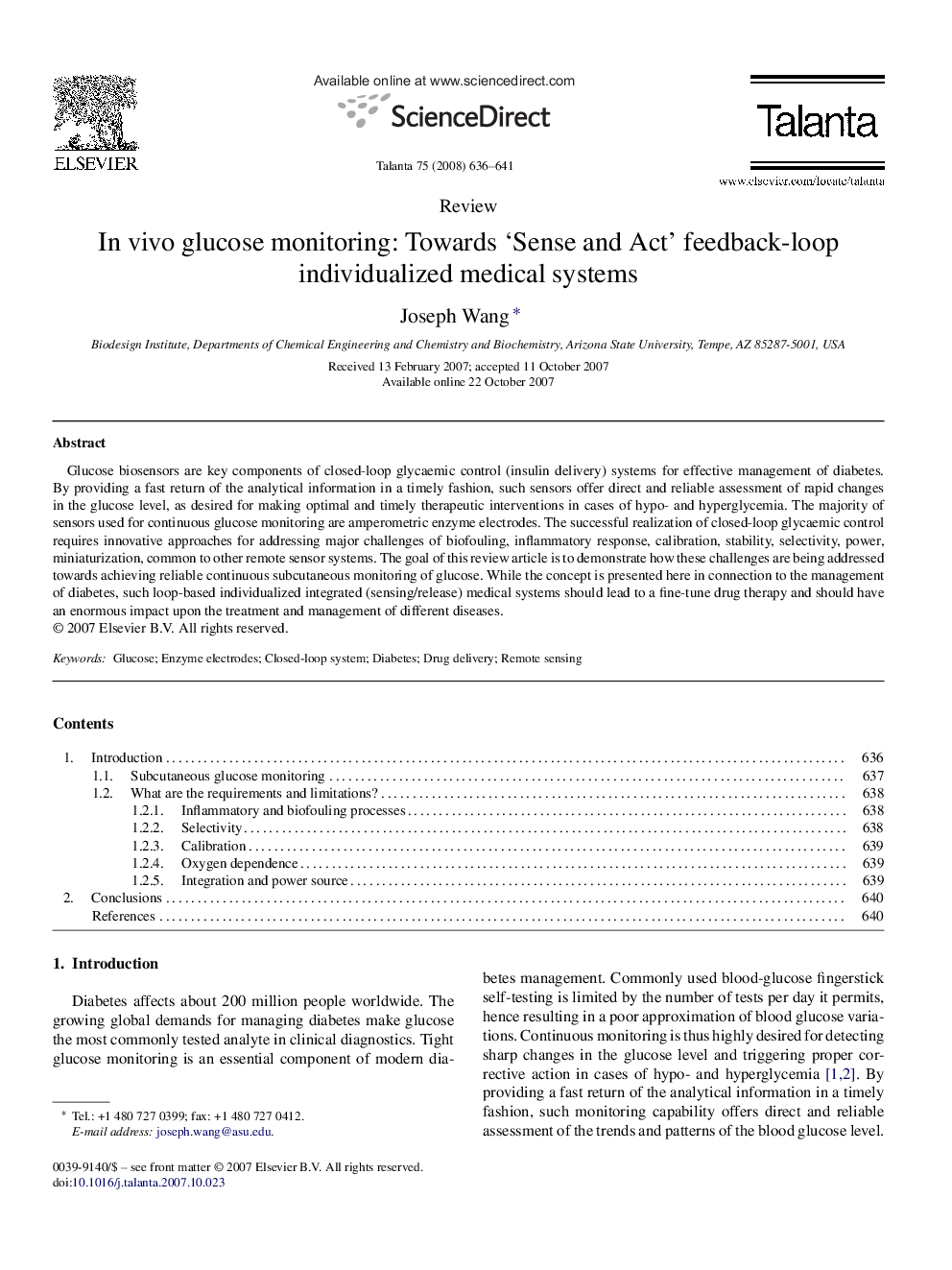| Article ID | Journal | Published Year | Pages | File Type |
|---|---|---|---|---|
| 1245566 | Talanta | 2008 | 6 Pages |
Glucose biosensors are key components of closed-loop glycaemic control (insulin delivery) systems for effective management of diabetes. By providing a fast return of the analytical information in a timely fashion, such sensors offer direct and reliable assessment of rapid changes in the glucose level, as desired for making optimal and timely therapeutic interventions in cases of hypo- and hyperglycemia. The majority of sensors used for continuous glucose monitoring are amperometric enzyme electrodes. The successful realization of closed-loop glycaemic control requires innovative approaches for addressing major challenges of biofouling, inflammatory response, calibration, stability, selectivity, power, miniaturization, common to other remote sensor systems. The goal of this review article is to demonstrate how these challenges are being addressed towards achieving reliable continuous subcutaneous monitoring of glucose. While the concept is presented here in connection to the management of diabetes, such loop-based individualized integrated (sensing/release) medical systems should lead to a fine-tune drug therapy and should have an enormous impact upon the treatment and management of different diseases.
